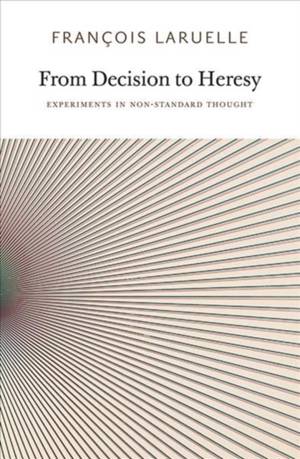
- Afhalen na 1 uur in een winkel met voorraad
- Gratis thuislevering in België vanaf € 30
- Ruim aanbod met 7 miljoen producten
- Afhalen na 1 uur in een winkel met voorraad
- Gratis thuislevering in België vanaf € 30
- Ruim aanbod met 7 miljoen producten
Omschrijving
The question "What is non-philosophy?" must be replaced by the question about what it can and cannot do. To ask what it can do is already to acknowledge that its capacities are not unlimited. This question is partly Spinozist: no-one knows what a body can do. It is partly Kantian: circumscribe philosophy's illusory power, the power of reason or the faculties, and do not extend its sufficiency in the shape of by way of another philosophy. It is also partly Marxist: how much of philosophy can be transformed through practice, how much of it can be withdrawn from its "ideological" use? And finally, it is also partly Wittgensteinian: how can one limit philosophical language through its proper use?
This introductory collection of writings by creative and subversive thinker François Laruelle opens with an introduction based upon an in-depth interview that traces the abiding concerns of his prolific output. The eleven newly translated essays that follow, dating from 1985 to the present, range from the origins of "non-philosophy" to its evolution into what Laruelle now calls "non-standard philosophy." Two appendices present a number of Laruelle's experimental texts, which have not previously appeared in English translation, and a transcript of an early intervention and discussion on his "transvaluation" of Kant's transcendental method.
Specificaties
Betrokkenen
- Auteur(s):
- Uitgeverij:
Inhoud
- Aantal bladzijden:
- 512
- Taal:
- Engels
Eigenschappen
- Productcode (EAN):
- 9780983216902
- Verschijningsdatum:
- 7/09/2012
- Uitvoering:
- Paperback
- Formaat:
- Trade paperback (VS)
- Afmetingen:
- 114 mm x 173 mm
- Gewicht:
- 430 g

Alleen bij Standaard Boekhandel
Beoordelingen
We publiceren alleen reviews die voldoen aan de voorwaarden voor reviews. Bekijk onze voorwaarden voor reviews.











